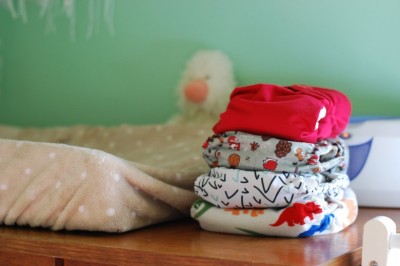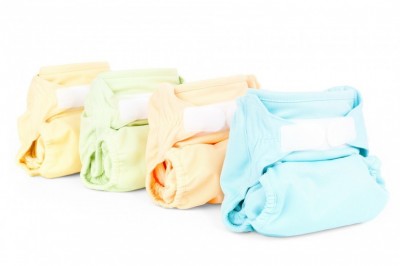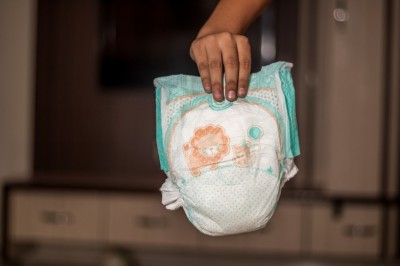
Ways Parents Can Encourage Older Children and Teenagers to Wear Diapers for Bedwetting
If the child, adolescent, or teenager is embarrassed about wearing the diapers and plastic pants to bed there are a number of different ways you can encourage them.
First, you can stress how much more comfortable it will be waking up in a dry bed.
Second,you can have them go to different chat rooms and online forums(with a younger child its a good idea to supervise them while they are doing this) so they can talk to people in similar circumstances. There are many online forums and chat rooms dealing with bed-wetting and other incontinence issues. Sometimes it helps to have a sympathetic ear and to realize there are other people in the same boat.
Third, you should tell them that there are a large number of adults that wet the bed and many of them also wear night diapers. I would let the child know that many adult bed-wetters probably feel a bit self-conscious wearing diapers to bed also, but they understand that ultimately its in their best interest to wear them.
Ive also read about cases where one or more parents have bed-wetting problems but their children dont. The parent might originally feel embarrassed about wearing diapers to bed(especially if their children are out of diapers) but many times the children are understanding and supportive of their parents. You can also mention that there are plenty of cases of adults who purchase diapers for other adults. An example of this is when a person buys diapers for their parent or parents that have medical problems that require them.
For instance many people are caregivers for parents( or other relatives) that suffer from Alzheimers disease. Incontinence is one of the symptoms of this disorder and the person has to purchase diapers for the individual who has Alzheimers disease. Another example is if a married couple deals with bed-wetting. In this case the spouse of the bed-wetter encourages them to wear diapers to bed. Although they might feel embarrassed at the prospect of wearing diapers, they realize its for their own good in addition to being considerate of the person sharing the bed with them. These are points that should be brought up to the older child,adolescent,or teenager that needs to wear overnight diapers but are reluctant to wear them.
A fourth strategy that you might want to consider is this. If your budget permits I would order a large or extra large, adult size pair of plastic pants and/or diapers. By showing the youngster an actual adult size pair of plastic pants or diapers in a a size that is larger than what they would normally wear, it might help them feel better about wearing diapers to bed. By actually seeing an adult size it reinforces the fact that adults wear them to bed also. This will help them more psychologically as opposed to just seeing something on a web site.
Fifth, you can explain to them that people have different needs in terms of managing their incontinence-thats why they have so many different styles of incontinence garments. There are different levels of incontinence-some wet more than others. You need to stress to the youngster that what works for one person might not be as effective for another. Also people can even experience the same types of incontinence differently.
For example,some bed-wetters sleep on their sides and might experience problems with urine leakage in this area. With that in mind it would make sense to purchase a certain brand or style of diaper specifically designed to address this particular issue. Sixth, emphasize to the child or teen that they are only wearing the diapers at night. Unlike during the day it is much easier to conceal the use of diapers at night.
Another suggestion I have for helping an older child,adolescent,or teen adjust to the prospect of wearing nighttime diapers is to have the youngster see a mental health professional such as a child psychologist. Many psychologists have experience dealing with this issue and might be able to provide therapy specifically designed to help them deal with the emotional effects of the bed-wetting such as the feelings of shame they experience.
If you have the financial means to try this option it would be worthwhile to consider this. You can talk to the mental health professional beforehand to see if they are able to offer counseling in this area. I talk about this in greater detail in my article "Bed-Wetting:When Cures Can Be Worse than the Disease."
Some people feel its okay if an older child or teenager doesnt want to wear diapers to bed provided they take care of the wet sheets,clothing,and blankets. This brings me to another strategy for motivating an older child or teenager to sleep in diapers at night. I would tell them that its much more time consuming washing bedding and clothing. By being aware of all the work involved in washing wet bedding and clothing it might make them more willing to wear diapers at night.
Another idea I have for helping parents encourage their older child or teenager to wear diapers for bed-wetting is to let them know that its not healthy for their skin to sleep in urine soaked clothing and bedding. Urine can have detrimental effects on the skin. I talk about these effects in my article "Bed-Wetting and Maintaining Appropriate Hygiene. " I encourage both parents and children to read this article. I feel that this will help immensely in getting both children and teenagers to see the merits of wearing diapers for bed-wetting.
The last idea I have is to implement a reward system designed to encourage the child or teen to wear diapers to bed. You can offer to increase their allowance by a certain amount. You could also say that if they agree to wear the diapers to bed for at least 6 months they can earn a certain amount of money per month such as $20.00(or whatever amount the parents can afford and are willing to pay them).If they dont wear the diapers and plastic pants to bed you can deduct a dollar for each night they dont wear them.
In addition to having a specific amount they can earn per month, if financially feasible it might be a good idea to purchase a present for them which you can give them after the 6 month trial period. Or they can earn a specified number of gold stars or points per month which they can cash in for presents. Again they will be deducted a gold star or point each night they did not wear the diapers to bed.
I think that verbal praise is an important part of the reward system. There is always the possibility that some older children and teens might get discouraged and not put on the diapers some nights. If this is the case its very important to encourage them.
Remind them of how proud you are for trying them out and also remind them of the reward system. I would say something along these lines: "Were real proud of you for trying the diapers and plastic pants out. I realize that its no fun wearing them but just keep in mind the advantages of wearing them-youll wake up nice and dry. Also remember that the more nights you wear them to bed the more money youll make. I know its hard but try to hang in there."
Its my contention that in order to motivate them to wear the diapers to bed for the long term its important to have some small rewards they can earn along the way while waiting for the big reward at the end. In my opinion, after the 6 months is up theyll feel so accustomed to wearing them and so comfortable wearing them, that they will want to wear the diapers to bed of their own volition and not need rewards anymore. After that period of time theyll most likely realize how comfortable it is to wake up nice and dry. At this point many parents are probably asking the following question- "Suppose we try this reward system for 6 months and theyre still resistant about wearing the diapers to bed?"
This is a judgment call but in this situation the parents can say the following to the youngster: "So you still dont feel comfortable with the idea of wearing diapers at night.? We understand that its difficult getting used to them but just remember what we told you-plenty of adults wear them also. There are millions of people all over the world of all age groups who have to wear diapers for various reasons. Some of them have to wear them during the day and night and some have to wear them only at night.
There are also many types and levels of incontinence and some products are more effective at managing certain forms of incontinence. Thats why there are so many different types and brands of diapers available. We appreciate you trying these out. How would you feel about wearing them to bed for a few more months? We thought it might be a good idea if you continue to wear them for another 3 to 6 months.
An important thing to keep in mind is that even with adults it can take them a while to get used to wearing the diapers." There is no guarantee that this will work but its worth a try. A second thing the parents might be wondering about is the following-suppose the child gets used to the diapers but pretends they havent to see if the parents might be willing to extend the reward system?
While many people might say this is being somewhat cynical, the possibility of this occurring(at least with some children) should be considered. Im not a parent but I do work with children in the school system so I know that kids can be manipulative. I think that in a situation such as this the parent has to make a judgment based on what they know about the personality and temperament of the child and their previous actions in different situations. In this case the parents intuition should serve as a fairly reliable guide.
A third possibility is that the rewards might eventually become a crutch. The parents need to make it clear to the child upfront that the purpose of the reward system is to encourage them to wear the diapers to bed, to help them adjust to putting on the protection every night,and to get them to understand that even though they might be a little embarrassed about wearing diapers, its more embarrassing sleeping in wet sheets and clothing(not to mention more uncomfortable).
The child needs to accept the fact that this is not a permanent solution .After a suitable period of time the parents have to wean the child off the reward system and this can vary with different children.
In combination with using a reward system there are certain scripts(as the mental health professionals say) that an older child, adolescent, teen, or adult can say to themselves in order to feel more comfortable with the idea of wearing diapers and plastic pants to bed. For example he or she could say something like this to themselves: "This is just a garment designed to absorb urine and prevent it from getting myself and my bed wet.
Wearing this is no reflection on my maturity. In fact by taking the appropriate precautions in dealing with the situation I am acting more mature. It doesnt matter what most people think. I am doing whats best for me in my particular situation and circumstances" or "Im just wearing these at night-no one but myself and my family know I have them on. Im asleep while I have them on so its not like Im going to notice them much anyway except when I put them on at night and take them off in the morning. Its like having a tooth pulled under anesthesia-I wont even notice it."
Another thing a person could say is the following: "Everyones body develops at different rates-some people are potty trained later than others and some wet the bed later than others. My bladder has just not developed enough where I can stay dry at night unlike during the day. I wore diapers during both the day and night to protect me when I was a baby so why should it be any different now-I still have the problem of wetting. Just because Im older doesnt mean I still dont need them.
Besides, they make diapers and plastic pants in my size so there must be a need for them-I am not the only one who wears them for bed-wetting."
If the child is younger you can tell them to play a little game. You can tell them to imagine that the diapers and plastic pants are a like dam and the bed is like a city. The dam(in this case the diapers and plastic pants) keeps the city(in this case the bed) from being flooded. Or they can pretend theyre a superhero and the diapers and plastic pants give them special powers-in this case the power to prevent their bed from getting wet. Finally they can look at the diapers and plastic pants in the same way as a raincoat.
Another tactic that a parent might want to try is to mention to the older child or teenager that many celebrities dealt with bed-wetting when they were younger. As mentioned in my article "Reasons for the Stigma Surrounding Diaper Use With Older Children,Adolescents,and Teenagers that Wet the Bed and Ways to Reduce this Stigma" there are many famous people who experienced this problem when they were younger. Among the famous individuals that suffered with this problem growing up were Johnny Carson,Suzanne Somers,Michael Landon,Mark McGwire,Vince Vaughn,and Sarah Silverman. I
n fact Sarah Silvermans recent book "The Bedwetter: Stories of Courage,Redemption,and Pee" recounts her experiences dealing with this problem when she was younger. Sarah dealt with this problem until she was 16.Sarah mentioned that she had to wear diapers to bed for a while. In one part of the book she talks about going on a camping trip when she was 12 and how her mother prepared Sarah for the trip by putting Pampers in the sleeping bag so she could be discreet about the issue.
Right now Id like to talk about one other factor that should be considered about approaching your youngster about wearing diapers to bed. In some cases the child or teen might be closer to one parent and as a result they feel more comfortable discussing personal matters with them. In a situation such as this, both parents should get together with each other before talking to the child to make sure theyre on the same page in terms of the best way to approach the youngster about wearing protection.
When youve both mapped out the best strategy and the parent is ready to talk to the child, I would say something along these lines: "We realize you might feel embarrassed about your bed-wetting. We just want you to know that theres nothing to be ashamed of. People of all ages(including many adults) have this problem also.
Both your father(or mother depending on who is talking to the child)and I came up with a plan to help you manage the problem. We both came up with a reward system designed to encourage and motivate you to try wearing diapers to bed for a while. Id like to talk to you about it now." In my opinion its a good idea to stress to the youngster that both of you decided that it would be best for the child or teen to wear diapers to bed so he or she doesnt think its some arbitrary decision. I think in general it might make a youngster feel better if both parents are in agreement because it shows the youth that there was more thought put into the decision, which in turn will most likely make he or she feel more comfortable with the idea of wearing diapers to bed.
The following section talks about how bed-wetting and diaper use can effect teenagers. Teenagers can be particularly sensitive about this issue. This section talks about one teenagers feelings regarding wearing pin-on diapers and plastic pants to bed. When reading about the teens difficulties I was struck by how poignant it was and how sad it is that other children and teenagers feel the same way. The teen feels that certain aspects of the diapers make him feel like a baby.
The pins,the bulk of the diapers between the legs,and the sound of the plastic as he moved around were triggers in his mind that made him feel this way. As mentioned, many older children and teens probably feel the same way but instead of viewing these aspects in a negative light it is conceivable to put a positive spin on the situation-instead of seeing the glass as half empty with the right attitude one can see the glass as half full. For instance the bulk of the diapers can be looked at as an advantage-it provides more absorbency and therefore better protection. Regarding a teens embarrassment about the rustling of the plastic pants as they move around, its important to remember that since the diapers are worn only at night this shouldnt be a concern.
The parents should let him or her know that its not unusual for a certain degree of noise to be associated with some diapers. Instead of viewing the plastic pants in a negative way,the person can view them in a positive light-they make the diapers waterproof which keeps the user dry and comfortable. If however the bed wetter shares a room with a sibling and is concerned that the sibling will notice the crinkling sound the diapers and plastic pants make when he or she moves around in bed, that concern can be addressed beforehand by the parents. As far as the safety pins are concerned, these should be viewed no differently than other tools for fastening clothes such as snaps,buttons,or zippers. My article "Teens and Bed-Wetting:Dealing With Diapers and Plastic Pants" talks about this issue in greater depth. If you have a teenager who is reluctant to wear diapers for bed-wetting I encourage you to have them read this article.
There are people with bed-wetting problems who buy disposable briefs to manage their bed-wetting. Disposable briefs are the term used for disposable diapers for older children, adolescents, teenagers, and adults. They have the same fit, style, and design as baby diapers. Disposable diapers can make a crinkling sound when the user moves around which makes some people feel self-conscious about wearing these types of garments. This generally happens with disposable briefs with a plastic outer cover, although it can also happen to a certain extent with some brands of disposable briefs with a cloth like outer layer.
The same strategies designed to make a person feel more comfortable with the idea of wearing pin-on diapers covered with plastic pants can also be used with disposable briefs. Again the parents can tell the child or teenager that the tapes should be looked at the same way as other methods for fastening clothing such as zippers, buttons, or snaps. As far as the rustling sound the plastic makes, it should be mentioned that since the diapers are worn only at night this shouldnt be a concern. Finally, the parents need to point out that the plastic is an important part of the diapers because it makes the diapers waterproof. This in turn provides more comfort and security for the person wearing the diapers. At this point Id like to mention that there are instances of bed-wetters using both pin-on cloth diapers covered with plastic pants and disposable briefs to manage their bed-wetting.
For instance, there are cases of people who alternate using both types of diapers. On some nights they wear the pin-on diapers and plastic pants and on other nights they wear the disposable diapers. Also there are cases of people who find the cloth diapers and plastic pants too hot to wear during the summer months and switch to disposable diapers during this time. The reason for mentioning this is that its good for people to consider different options for managing bed-wetting. Its not at all uncommon for people to use both reusable and disposable diapers.
By being open to experimenting with different styles and brands of diapers, it makes it more likely youll find the best type of diapers(or combination of diapers) to manage your youngsters bed-wetting. Also there are parents who use both pin-on diapers covered by plastic pants and disposable diapers for their babies so it might be a good idea to consider the possibility of trying this combination out to see what works best for you. I emphasize this point in many of my articles discussing the different types and brands of plastic pants,cloth diapers,and disposable diapers available to manage bed-wetting with older children, adolescents, teenagers, and adults.
I strongly feel that its a good idea to combine the methods discussed in this article. By doing this,youre more likely to have success in motivating your youngster to wear the diapers at night. How you do this will have to be tailored to the individual needs of the child-everyone is different and some of the ideas discussed in this article will have different rates of success with different individuals,but I believe that with the right methods(and combination of methods) and persistence,youll have luck with even the most stubborn and resistant youngster.
If you havent decided what type or brand of diapers you want to buy for your older child,adolescent,or teenager please see my article "Choosing the Right Diaper for Older Children,Adolescents,and Teenagers with Bed-Wetting Problems." This article talks about both cloth diapers and disposable diapers. Other articles you might want to read are "Information Regarding Pin-On Diapers for Older Children,Adolescents,and Teenagers with Bed-Wetting Problems" and "Brands of Plastic Pants for Older Children,Adolescents,and Teenagers with Bed-Wetting Problems."
One of the reasons some older children might be anxious about wearing diapers at night is that they might believe that their parents are going to diaper them before they go to bed. I think its important that parents talk to their child about this and let them know that theyre going to be responsible for putting on their own protection. After deciding what type of diapers to purchase for your bed-wetter I encourage you to read my article "Older Children, Bed-Wetting,and Self Diapering." This article talks about why I feel its important to let an older child be responsible for putting on their own diapers.
Whatever you do its important to not get frustrated or discouraged if the youngster is having difficulty adjusting to wearing the diapers to bed. This will not happen overnight but with the right amount of support and encouragement they will eventually get used to putting them on.
With many medical issues it can take some effort getting used to the particular treatment. For instance when a person gets glasses or braces it feels a little awkward and unnatural at first but the individual gets used to them over time. As I mentioned before I would remind the youngster that plenty of adults also wear diapers for their bed-wetting and although they might be embarrassed by having to put them on before going to bed they realize its for their own good.

























